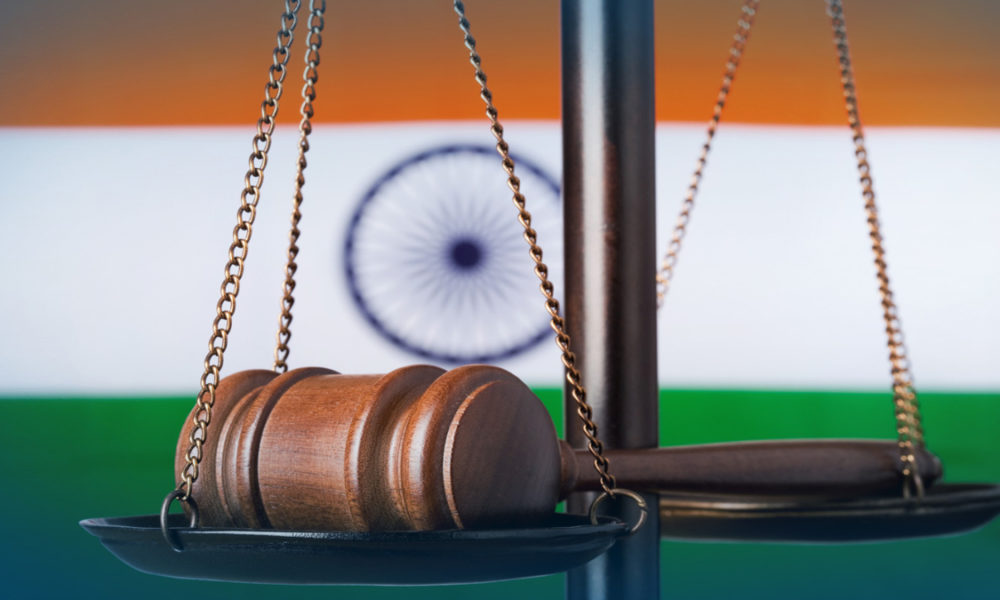The World is going through a pandemic which has brought the world to a standstill. Apart from the annihilator impact that COVID-19 continues to unleash on living creatures across the world, it has also reached commerce and business. Economic activities were dreadful from the past two and a half months which have now started taking the baby steps in India. During this challenging time, India captured the real picture of administration across several functionaries. The Judicial system was always in the spotlight because of history of being delayed. However, the pandemic situation has affected by making it even worse because of overburden and heavy clogging of thousands of cases.
To ease pressure and to extract the burden of the courts, Alternate Dispute Resolution (ADR) methods for resolving the disputes were introduced as a time and cost-efficient method. Arbitration, being one of such alternates, emerged out as a most favourable way to avoid prolonged litigation in several countries across the world including India. Every difficult time in history brought some institutional changes, and most of the time these changes headed towards some better. Interestingly, the stream of arbitration being a private process is quickly adapting to COVID-19. Arbitration is an alternative and effective way of resolving a dispute usually with sole arbitrator or more being appointed by the parties to the dispute. During this challenging time, the advantage of the inherent flexibility, the pragmatism of the arbitral process, its efficiency, and innovative mechanisms makes it an attractive dispute resolution tool. The parties to the dispute can opt for the arbitration even though they have not negotiated an arbitration clause.
tiated an arbitration clause. In order to function efficiently, several arbitral institutions have brought certain changes in their operation amidst this difficult time. Almost every change is directly or indirectly paired by technology and the internet. To safeguard the health and wellbeing of staff, as well as the users, many arbitral institutions took precautionary steps shortly after the declaration of COVID-19 as a pandemic. Despite the ongoing difficulties, a logical prediction is that the number of matters being referred to arbitration may increase post COVID-19. As of now, fulfilment of contractual obligation is the biggest headache for almost every business entity. All the companies are taking legal pieces of advice on force majeure provisions and the ability or inability to fulfil their contractual obligations due to this pandemic. As arbitration is a popular choice in industrial and the corporate realm, parties may very soon find themselves submitting requests for arbitration to their chosen institution as per the agreed terms for adjudicating several contractual disputes. Although at present, the business entities are mainly focusing on continuity of their operations as a going concern; however, they will definitely look after dispute resolution at a later stage especially because of the commitment of arbitration institutions to operate as normal during these times.
Almost all popular arbitration institutions have adopted several measures in the wake of COVID-19. Several Institutions like International Chamber of Commerce (ICC), London Court of International Arbitration (LCIA), Singapore International Arbitration Centre (SIAC), Hong Kong International Arbitration Centre (HKIAC), and Australian Centre for International Commercial Arbitration (ACICA)/ Australian Disputes Centre (ADC) have adopted the virtual system of filing and hearing the matters. On 16thApril 2020 a joint statement was published by thirteen arbitral institutions, focusing on the importance of resolving disputes even during the COVID-19 outbreak, “Collaboration is particularly important as each of our institutions looks to ensure that we make the best use of digital technologies for working remotely.” The joint statement further reads as “Our institutions stand ready to assist to the best of our ability, and welcome parties and tribunals to reach out and to consult guidelines and information as published on our respective websites.” It is quite apparent that major arbitral institutions have welcomed this virtual change. Delhi International Arbitration Centre (DIAC) has also issued a statement that the Arbitrators and parties may conduct the proceedings through teleconference as per their convenience, with due intimation to DIAC by email.
It seems that the arbitration may become a suitable avenue in future and it may seize the opportunity post COVID-19. However, to maintain its efficiency, there will be an increase in the demand for technological tools and resources. There are several emerging mechanisms which gives arbitration an edge over traditional litigation, especially in commercial matters. Online dispute resolution or ODR being one of such emerging mechanism is a process to settle disputes outside courts with a combination of technology and alternative dispute resolution mechanisms. Countries like China, Brazil, and U.S.A have already adopted the ODR mechanism by constituting their separate platforms to resolve disputes arising out of e-commerce transactions. In India, ODR is in its initial stage but it may be adopted at a large scale in India especially during this pandemic. As it is proven fact that the technology improves with time and technology being the main ingredient of different ODR methods, it is obvious that ODR will serve as an efficient platform for quick disposal of cases. Another such efficient system is seen in recent years, where several arbitration institutions have established “Emergency Arbitrator” provisions which can be utilised in cases where urgent relief is required by any party to the dispute. Such provisions of urgent relief could provide companies speedy resolution to a dispute and therefore, recourse to these provisions may look more attractive during the COVID-19 pandemic. “Emergency Arbitration” is usually agreed and arranged by the parties themselves without recourse to a tribunal at the first instance. In India, in order to recognise Emergency Arbitrations, The Law Commission’s 246th Report on amendments to the Arbitration and Conciliation Act, 1996, proposed an amendment to Section 2(d) of the Act. This amendment was to ensure that institutional rules such as the SIAC Arbitration Rules, or ICC Rules or any other rule which provide for an appointment of an emergency arbitrator are given statutory recognition in India. The Amendment of 2015, however, failed to incorporate the recommendation of the Law Commission and does not provide for Emergency Arbitration in the amended provisions. It may be noted that even after getting no place in statutory provisions, Emergency Arbitration is trying to absorb its place in the rules and procedures of several arbitration institutions. The Delhi International Arbitration Centre, of the Delhi High Court in Part III of its Arbitration Rules, includes ‘Emergency Arbitration’. Further Section 18A enumerates ‘Emergency Arbitrator’ and also explains the appointment, procedure, time period and powers of an Emergency Arbitrator. The International Commercial Arbitration (ICA), under Section 33 read with Section 36(3), also enumerates the provisions of Emergency Arbitrator. However, India still awaits a formal statutory recognition of the awards of the Emergency Arbitrator.
The impact of COVID-19 is reaching far beyond our imagination and we have a duty to take recommended precautions to prevent the spread of the virus. Along with this, we should also try that access to justice and business relationships should not be put on hold, to the extent possible, during the COVID-19 pandemic and we must take it upwards post this pandemic. With due consideration to all the advantages and drawbacks of virtual proceedings, the future frame of arbitration seems rightly shaped all over the world as the institutions are making endeavours to combine technology to aid them in resolving various disputes. The concept of virtual hearings will not only save a lot of time but also cut sort the costs involved in an arbitration hearing, particularly those related to travel and accommodation. As arbitration has the feature to quickly adapt its user needs, it had absorbed the ongoing situations quickly. However, the battle in India can be won more efficiently with some improvement by giving a place to technology in existing provisions.
Adv. Ashutosh K. Sharma practices at the Delhi High Court.







